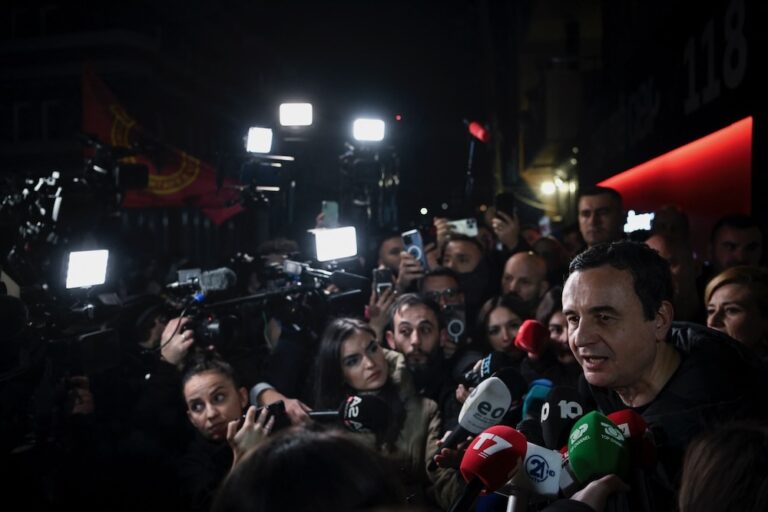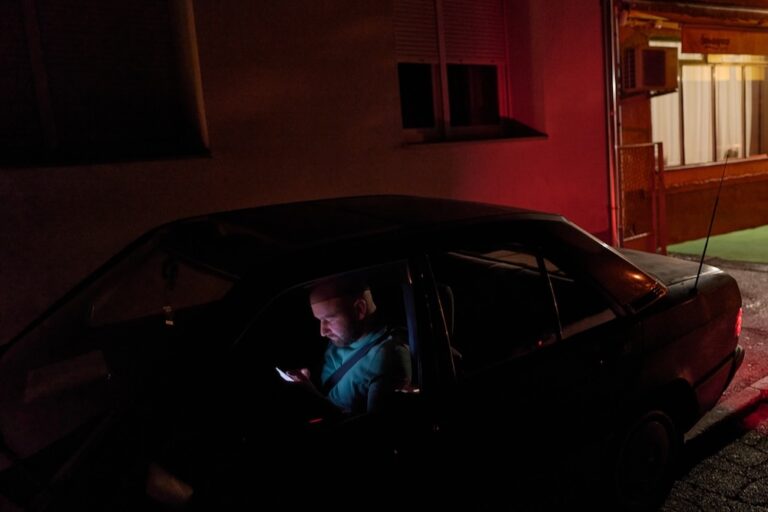(WPFC/IFEX) – The following is an 11 February 2000 WPFC press release: FOR IMMEDIATE USE 11 February 2000 World Press Freedom Committee Concerned About “Protection” Measures in BiH RESTON, Va. — the World Press Freedom Committee today expressed concerns that steps proposed by Western allies to “protect” journalists in Bosnia-Herzegovina could be used instead to […]
(WPFC/IFEX) – The following is an 11 February 2000 WPFC press release:
FOR IMMEDIATE USE
11 February 2000
World Press Freedom Committee Concerned About “Protection” Measures in BiH
RESTON, Va. — the World Press Freedom Committee today expressed concerns that steps proposed by Western allies to “protect” journalists in Bosnia-Herzegovina could be used instead to restrict news.
In a letter addressed to United Nations Secretary General Kofi Annan, WPFC noted Annan’s strong record of commitment to press freedom. The Secretary General has endorsed a list of 10 press freedom principles, the Charter for a Free Press, drawn up by journalists of more than 30 countries.
The letter referred to a six-point program “intended to protect journalistic inquiry and free speech in Bosnia-Herzegovina,” announced jointly by the United Nations, Organization for Security and Cooperation in Europe (OSCE) and Bosnia’s Independent Media Commission. A copy of the joint announcement is attached.
The plan provides for:
Drafting new media laws in Bosnia-Herzegovina;
Establishment of a press council to provide “a means for self-regulation of print journalism”;
Guidelines for journalists and police;
A Media Summit resulting in recommendations for additional steps;
A survey of media freedom in Bosnia-Herzegovina;
A monitoring system to track possible abuse of authority by public officials and to provide a helpline for journalists.
Unfortunately, the WPFC letter said, experience has shown that some of these same instruments, even when developed with good intentions, “can have unintended negative results such as restrictions on news and harassment — or worse — of journalists.”
For example, in countries lacking the foundations of democracy — including free and fair popular elections, a free and independent news media and independent courts — mechanisms such as press laws, media councils and ethics codes have been used routinely as tools of restriction on the free flow of information and news.
The WPFC letter, a copy of which is attached, urged Mr. Annan and leaders of the other organizations involved in rebuilding Bosnia-Herzegovina’s administration to rely on and refer to principles of the Charter for a Free Press and Article 19 of the Universal Declaration of Human Rights as the benchmarks for press freedom in Bosnia and elsewhere.
11 February 2000
The Honorable Kofi A. Annan
Secretary General
United Nations
New York, N.Y. 10017
Dear Mr. Secretary General,
You have shown your strong dedication to press freedom and the free flow of information as vital elements in any functioning democracy. On behalf of the World Press Freedom Committee and its 44 affiliated journalistic organizations, I extend sincere appreciation for this awareness and commitment.
As the international community takes joint steps seeking to protect journalists in Bosnia-Herzegovina, I ask you to assert, among the international partners in this endeavor, your keen awareness of the many dangers to press freedom that can lie behind even the best-intended measures.
We know that instruments such as media laws, press councils, journalists “guidelines” and media summit meetings — outlined in a Feb. 8, 2000 press announcement issued jointly by the United Nations, OSCE and others — can have positive effects when developed and implemented in an environment of democracy and press freedom.
However, we have learned through sad experience that these same instruments, even when developed with good intentions, can have unintended negative results such as restrictions on news and harassment — or worse — of journalists.
You are among the world leaders who have endorsed a simple, straightforward statement of press freedom principles adopted in 1987 by journalists of 34 countries.
These principles, embodied in the Charter for a Free Press, remain the best and purest standard, along with Article 19 of the Universal Declaration of Human Rights, for maintaining the vital flow of news and information in the world.
I enclose a copy of the Charter, which is available in major world languages, should you wish to share it with those now formulating media guidelines for Bosnia-Herzegovina, and for those who might work similarly in other regions.
Its provisions set forth the aspiration of democratic societies and indicate the line beyond which even good intentions can become transformed into intrusions on a fundamental human right.
Sincerely,
Marilyn J. Greene
Executive Director
cc:
Madeleine Albright
Robert L. Barry
Douglas Davidson
Freimut Duve
Benita-Ferrero-Waldner
Harold H. Koh
Jan Kubis
Dieter Loraine
Wolfgang Petritsch
Recommended Action
Similar appeals can be sent to:
The Honorable Kofi A. Annan
Secretary General
United Nations
New York, N.Y. 10017
Fax: +212 963 4879
Please copy appeals to the source if possible.


